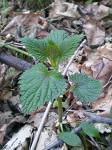Today is World Water Day. Celebrate it with
• a dunk in the ocean, a lake or a river if your are living in a warmer climate
• a cold shower (Don’t do it if you have uncontrolled high blood pressure – controlled on medication is fine – or if you have an arterial disease)
• a nice warm herbal bath, together with gentle music and a lit candle (unscented because scented candles and incense are harsh on the lungs). Warm baths relax and soothe. And any fragrant herb you have at hand will increase water’s action:
- Chamomile works against sore skin and insect bites
- Dandelion flowers: Gather as many as you can find and throw them directly into your tub – they will make you playful like a princess and renew your skin and will drive out the winter blah
- Eucalyptus opens your lungs and helps you breathe
- Ginger, grated, to enhance blood flow to all parts of your body
- Hops for easing you into the night
- Jasmine to make you smile and refresh your skin
- Lavender for calming your nerves and rejuvenating your skin
- Linden flowers relax and might help with a beginning cold
- Meadowsweet helps sore muscles and will bliss you out
- Mint stimulates and heals your skin
- Orange blossoms for beautiful skin and nourishing your soul
- Parsley heals bruises
- Rosemary for relaxation
- Rose petals to enliven your skin after a long day
- Sage against stiff, hurting muscles after a workout
- Stinging nettle to push sluggish circulation, and are a tonic for your skin and your whole being
- Valerian root for easing tattered nerves and prepare for a good night’s sleep
So many more herbs grow on our beautiful Earth! Use any combination of herbs you like: Dare to explore!
Never make the bathwater too hot! And always, always. always end your hot bath with a short cold shower or gush, starting with feet, hands, face, and then your whole body – to close your pores.
Before you dress or go to bed, slather your skin with coconut oil. There’s nothing better for your skin!
Cooler bathwater acts more like a stimulant – when you want to go out afterwards and shine in the world.
And a tepid bath can lower fevers – especially helpful in small children. But in small children, especially those under three years of age, I would not use herbs in the bathwater, just plain water. They can have violent reactions.
You have two ways to do an herbal bath: To throw a handful of herbs directly into the hot bath water. Or to brew a tea in a pot, and then add the steeped tea to the bathwater. This last method is less messy. There’s actually a third way: To buy an herbal bath tea bag – much bigger than those used for tea in a cup – and throw it into the bathwater; contain a medley of herbs, usually to lift your spirits and to soothe your skin.
As always: Don’t use any herb that you are allergic to. Allergies to herbs are rare, but they can happen.
Herbal bath can heal. But don’t forget the immense pleasure they bring into your life! And other than commercial baths (foam, lotions, soaps, salts, etc.), they are pure Nature, particularly if you pay attention from where you get them.
And after a renewing bath like this you will know again why we have to protect Earth’s healing waters. Think about ways how you can save water! Read More
Blog: On Health. On Writing. On Life. On Everything.
Spring Fatigue - Undiagnosed
April 19, 2010
A disease exists in Europe that is never diagnosed here: Spring fatigue. Around February, March, April everybody complains about it - and suffers.
Spring fatigue happens when the body is depleted of essential nutrients at the end of the winter, after not enough fresh fruit and vegetables in the cold months.
Do American people not have it? I think they do have spring fatigue - they are just not told about it. Because there is no pill against it. And the rather like to think they have spring fever...
Yet the remedy is easy: Eat about as many fresh greens you can put your hands on: chives (around this time I put handfuls of chives on and in about everything), dandelions, spring onions, stinging nettles, kale, chard, spinach. Many might be weeds in your garden.
Stinging nettles? Yes! It is a weed, but I planted it in my garden on purpose (in a raised bed). Yesterday, I made my first nettle soup of the season. The recipe is easy: Boil one or two cut potatoes (including skin) with a little bit of water and salt. When half soft, add stinging nettle leaves (the stems are tough; you need gloves to handle nettle because they sting), olive oil and pepper. Boil until soft - only a few more minutes. You can puree it - I did. But one can also just eat it like a green vegetable. Never forget the olive oil - without fat, your body cannot assimilate vitamin A from the greens.
Europeans think the stinging nettle is the most valuable herb, period. They use it for a tonic, strengthening the body overall. It is also good against hay fever, but you better buy it as phyto-caps for that purpose. The nettle root is used against prostatitis.
Make sure you know your herbs and harvest your herbs from a clean place - not where dogs pee on them. Go for a local herb walk to learn about herbs. Read More
